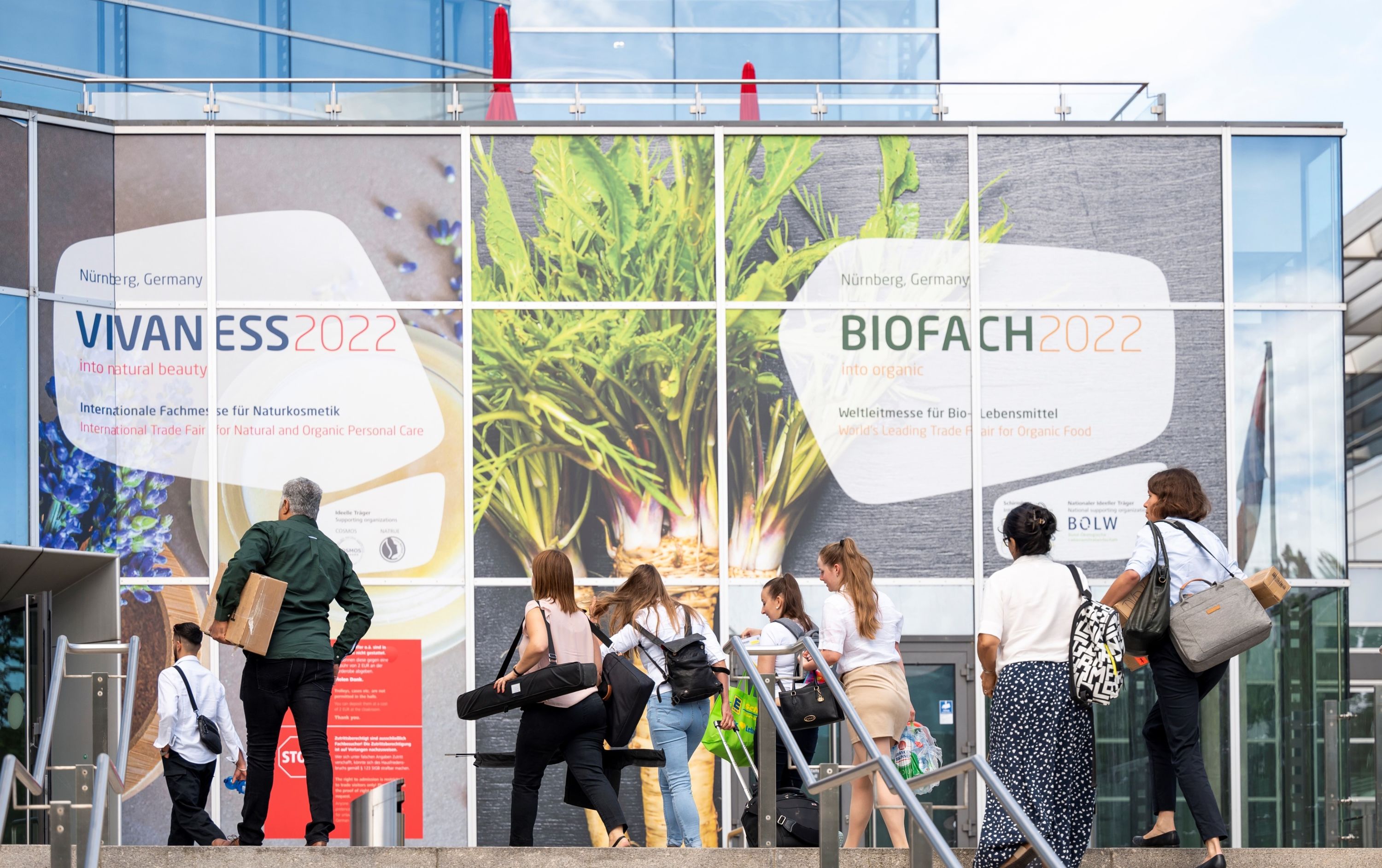Newsletter
Don't miss a thing!
We regularly provide you with the most important news, articles, topics, projects and ideas for One World – No Hunger.
Newsletter
Don't miss a thing!
We regularly provide you with the most important news, articles, topics, projects and ideas for One World – No Hunger.
Please also refer to our data protection declaration.
The "Biofach", the world's largest trade fair for organic food, took place in Nuremberg from July 26 to 29. The Import Promotion Desk (IPD), a project of the German Federal Ministry for Economic Cooperation and Development (BMZ), accompanied organic producers from developing and emerging countries to the fair and supported them in finding European trading partners and establishing sustainable business relationships. Dr. Julia Bellinghausen, head of the IPD, explains in an interview the importance of organic certification in export promotion.

Dr. Bellinghausen, could you briefly introduce us to the work of the IPD?
Dr. Julia Bellinghausen: The IPD assumes a hinge function between European importers and small and medium-sized players in selected developing and emerging countries. We prepare producers for the EU market, informing them in workshops and training sessions about the requirements to be met in terms of regulations, import conditions and quality standards for launching products in Europe. Also, we bring together exporters who are capable of exporting with European buyers. That's why we are present at many trade fairs - including Biofach.
Your booth at Biofach, organized together with the Deutschen Gesellschaft für Internationale Zusammenarbeit (GIZ), was themed "Organic Sourcing for Development". Can you explain the title?
As an import promotion initiative, the IPD supports European importers in their search for new sourcing markets neutrally and free of charge. In their sourcing, the IPD experts consider the importers' requirements in terms of product quality, supply capacities, logistics and much more. We are convinced of the principle of "Sourcing for Development", because professional sourcing creates the prerequisite for a business deal. If good quality can be delivered continuously in sufficient quantities, a sustainable business relationship can develop from this deal. That is our goal. We want to better integrate developing and emerging countries into global trade and in this way contribute to sustainable development in these countries.
Organic quality is playing an increasingly important role in our sourcing. We specifically support the export of products for which there is high demand on the European market.
And the demand for organic products has been growing constantly for years. At the same time, there is great – yet undiscovered – potential in our partner countries. Therefore, demand is matched by a diverse range of organic products, which we have been presenting at Biofach since 2015 under the motto "Organic Sourcing for Development".
Can you give us some examples from the IPD partner countries?
At Biofach, for example, we accompanied companies from Egypt that produce herbs and spices, among other things. Egypt's agriculture is still dominated by conventional cultivation. However, many companies recognize organic certification as an important export requirement and are converting their production.
In other countries there are many products from wild collection or from traditional production without additives and pesticides. For example, from Sri Lanka and Indonesia, we support many coconut producers who offer organic coconut blossom sugar, coconut oil and coconut flour. They produce originally, but they lacked the organic certification at the beginning of the cooperation. However, it is of central importance for coconut blossom sugar and coconut oil. Organic certification is what makes market introduction possible in the first place.
In Ukraine, more and more companies are turning to organic, as with berries, a traditional Ukrainian product. Organic cultivation is growing from year to year. Berry producers and many other companies from Ukraine are represented at Biofach despite the war. They present products that are currently not needed in Ukraine. We have expanded our involvement in our partner country Ukraine and are supporting new companies that are well prepared for the European market as part of a special program financed by the German Federal Ministry for Economic Cooperation and Development (BMZ). We are pleased to present these exporters at Biofach.
In total, we presented more than 170 organic products at our booth this year – this illustrates well the large range of products from developing and emerging countries.
Weitere Informationen unter www.importpromotiondesk.de